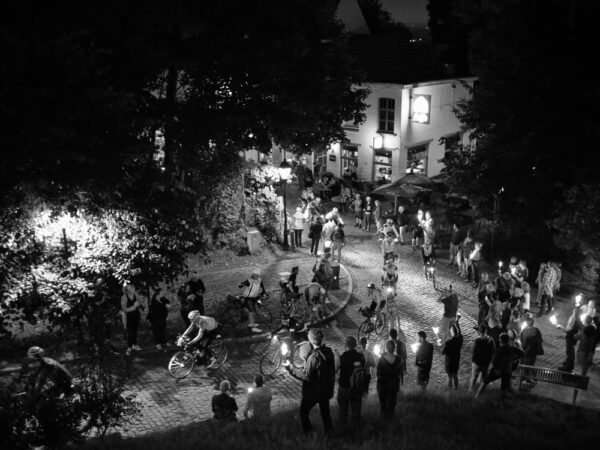You’ve watched the dots, read the blogs, and relived the experience through some glorious photography, and now you want to race the Transcontinental (or the Trans-Am/Trans-Atlantic Way).
Previous competitor Martin Cox lists 10 things you should know before taking on your first ultra-cycling race…
- It’s hard. So hard, in fact, that I won’t even try to explain it! You will get an idea about the level of suffering involved from social media, but when the weather is at its worst, the pain won’t subside, or the mood is at its foulest – those are the times that the riders don’t take to social media, those are the times when it is just you against yourself.
- It really isn’t about the bike. The bike helps, but the bike is a tool, and it’s great to have the ‘best’ tool for the job, but Beethoven could have written a symphony on a kid’s piano!
- Train your mind as much as your body – who are you, why are you here, what are your motivations, are you riding to, or from, something? What are you going to say to yourself when the crap hits the fan – because it will, and at that moment you will need to dig yourself out of whatever hole you find yourself in.
- “What’s the weather like?” All of it! Crossing a continent might see blizzards and heatwaves within days of each other. Be prepared for anything!
- Stop drinking coffee 2 weeks before the event – your body develops a resistance to caffeine so by stopping consumption in the weeks leading up to the event you can increase its potency for when you really need it. And you don’t need it for the first few days of the race!
- EAT! You are burning circa 600 calories per hour, they need to be replaced! All your training with its macros and micros goes out of the window – welcome to the wonderful world of forecourt dining – where anything goes!
- DRINK! Have a strategy for getting liquids in; you need them to keep on rolling. Can you fit another bottle on your bike? Some will ride on 2 bottles, others with 5; find out what works for you.
- Get a bike fit. If you are going to be spending 2/3/4 weeks sitting on the bike you need to be sure that it fits correctly. A bike that fits will give you more power, more comfort, and more speed. An ill-fitting bike will rob you of all those, increasing the likelihood of injury and/or nerve damage.
- Prepare for the cliché… you will be changed by the ride! Just lining up at the start will open your mind and change your perspective on life, obstacles will seem smaller, challenges are now approached with new vim and vigour, and you will never be the same again!
- Take care of the outside world as best you can prior to the start! The last thing you want is a client’s phone call, an unhappy partner, or some university re-marking to complete whilst over-nighting in a mosquito-ridden motel high up in the Rocky Mountains… (but be flexible enough to cope with these sort of challenges as/when they occur!)

The riders setting off. Image from Transcon website.
So what’s it all about?
The PEdAL ED Transcontinental Race describes itself as “the definitive self-supported bicycle race across Europe. At the sharp end it is a beautifully hard bicycle race, simple in design but complex in execution. Factors of self reliance, logistics, navigation and judgement burden racers’ minds as well as their physiques. The strongest excel and redefine what we think possible while many experienced riders target only a finish.”
Do you think you have what it takes? Last year’s winner, James Hayden, completed the race in an incredible 8 days 23 hours and 14 minutes. Just take a look at the distances he covered each day!
Day 1: 600km
Day 2: 360km
Day 3: 426km
Day 4: 473km
Day 5: 431km
Day 6: 429km
Day 7: 409km
Day 8: 469km
day 9: 457km
The event has fast become a bucket list for many cyclists. Yellow Jersey Cycle Insurance have special rates for our bicycle insurance and cycle travel insurance for TCR competitors, please get in touch if you would like more information.